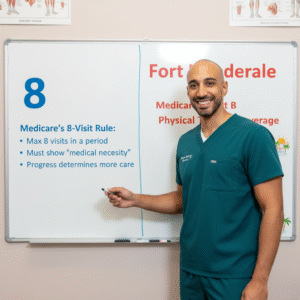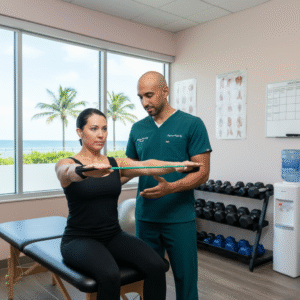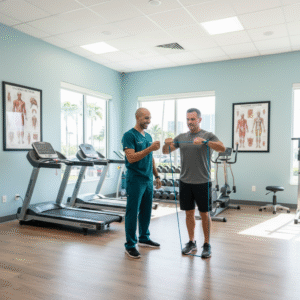Introduction
Undergoing surgery is a significant event, and the recovery process can be just as crucial to ensure the best outcomes. Whether you’ve had a minor procedure or major surgery, following the right recovery steps can make a significant difference in your healing journey. Here are five essential tips to help you navigate your post-surgery recovery smoothly and effectively.
1. Follow Your Doctor’s Instructions
The most critical aspect of post-surgery recovery is adhering to your doctor’s instructions. This includes taking prescribed medications, attending follow-up appointments, and adhering to activity restrictions. Your doctor provides these guidelines based on your specific surgery and health condition, so it’s crucial to:
- Take medications as prescribed: Whether they are antibiotics, pain relievers, or other medications, following the prescription schedule is essential to prevent infections and manage pain.
- Attend follow-up appointments: Regular check-ups allow your doctor to monitor your progress and address any complications promptly.
- Follow activity restrictions: Engaging in activities too soon can hinder your recovery or cause complications. Listen to your doctor’s advice on when to resume normal activities.
2. Maintain a Balanced Diet
Nutrition plays a vital role in healing and recovery. Consuming a balanced diet helps your body repair tissues, reduce inflammation, and regain strength. Key dietary tips include:
- Include protein-rich foods: Proteins are the building blocks of tissue repair. Incorporate lean meats, fish, eggs, beans, and nuts into your diet.
- Stay hydrated: Proper hydration aids in healing and helps maintain body functions. Drink plenty of water throughout the day.
- Eat a variety of fruits and vegetables: These provide essential vitamins and minerals that support the immune system and promote recovery.
- Limit processed foods and sugars: These can cause inflammation and slow down the healing process.
3. Get Adequate Rest
Rest is crucial for recovery as it allows your body to heal and regain strength. Ensure you:
- Sleep well: Aim for 7-9 hours of sleep per night. Quality sleep aids in tissue repair and overall recovery.
- Avoid overexertion: Listen to your body and avoid pushing yourself too hard, especially in the initial stages of recovery.
- Take short naps if needed: If you feel fatigued during the day, short naps can help boost your energy levels.
4. Engage in Gentle Physical Activity
While rest is essential, so is gentle physical activity. Movement helps improve circulation, reduce the risk of blood clots, and prevent stiffness. Depending on your surgery, your doctor may recommend:
- Short walks: Walking can help improve circulation and speed up recovery. Start with short, frequent walks and gradually increase the duration.
- Gentle stretching: Light stretching exercises can prevent stiffness and maintain flexibility.
- Physical therapy: If prescribed, physical therapy can be instrumental in your recovery, providing guided exercises to restore strength and mobility.
5. Monitor Your Mental Health
Surgery and recovery can take a toll on your mental health. It’s important to address any feelings of anxiety, depression, or frustration during this time. Strategies to support your mental well-being include:
- Stay connected with loved ones: Social support from family and friends can provide comfort and encouragement.
- Practice relaxation techniques: Techniques such as deep breathing, meditation, and mindfulness can help reduce stress and anxiety.
- Seek professional help if needed: If you find it challenging to cope with your emotions, consider speaking to a mental health professional.
Conclusion
A smooth post-surgery recovery journey requires a combination of following medical advice, maintaining a healthy lifestyle, and paying attention to both your physical and mental well-being. By adhering to these five essential tips, you can enhance your recovery process, reduce complications, and return to your daily activities with renewed strength and vitality. Always remember to consult with your healthcare provider before making any changes to your recovery plan.






